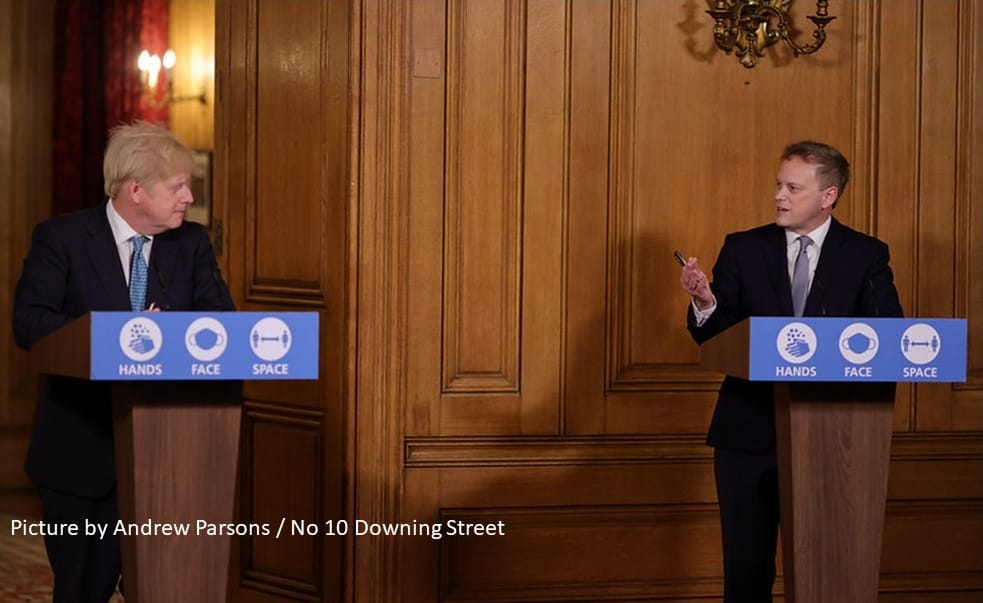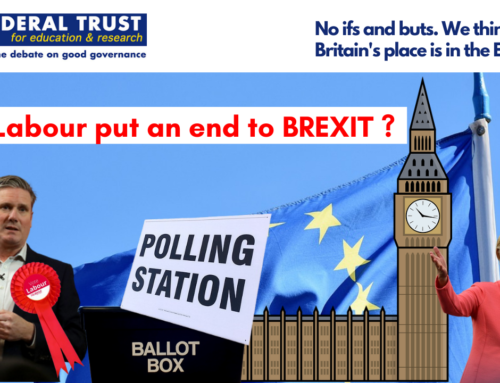The last weeks of 2020 will provide a slew of illustrative material for future historians wishing to highlight the moral and administrative decline of the British state in face of the challenges of Brexit and Covid-19. Pride of place will go to the twin nominations to the House of Lords of the former MEP and Brexit campaigner Daniel Hannan and the former Treasurer of the Conservative Party Peter Cruddas. As a result of these nominations, both men will be able to enjoy for their lifetime an unchallenged but influential role in British political decision-making. Hannan’s elevation neatly combines the themes of Brexit and the pandemic. He was long a leading advocate of the misleading claim that after Brexit the United Kingdom would maintain its access to the European Single Market and wrote a widely-publicised article in February 2020 under the headline “The coronavirus isn’t going to kill you.” His elevation is a further step in the long march of Leave campaigners through the UK’s political institutions.
Even more striking is the nomination of John Cruddas, a major donor to the Conservative Party and Leave campaign. His membership of the House of Lords will occur despite the refusal of the Appointments Committee of the House of Lords to endorse his peerage and a vigorous protest from the Speaker of the House of Lords, the former Conservative peer Lord Fowler, against the length and timing of the list of new peers. Future historians will note particularly in this incident that the protests of the Appointments Committee and of Lord Fowler will have no effect whatsoever. Their remonstrations will join the long list of incidents proving that the informal and conventional nature of the British polity provides no sufficient protection against the arrogance of an executive determined to have its often wilful way at all costs.
The role of the Prime Minister
This unconventional approach of Boris Johnson to Parliamentary governance had already been on spectacular show at Prime Minister’s Question Time last week. On that particular occasion he ridiculed the doubts expressed by the Leader of the Opposition about the relaxation of anti-Covid precautions proposed by the government for the Christmas period. Within three days the Prime Minister had himself changed his mind on the Christmas relaxations, in a way that he must have known at the time of Parliamentary Questions might well soon become inevitable. A momentary advantage in verbal jousting was more important to him than the demands of good governance. For a further seventy-two hours families continued to make often expensive preparations for Christmas reunions. It was not until Parliament had risen that the Prime Minister felt safe enough to announce his volte-face in a press conference, at which he blamed his latest change of mind upon a new mutation of the coronavirus.
While this stress upon the new mutation of the virus was a convenient rhetorical prop for the Prime Minister, its use had broader consequences. These consequences were wholly predictable, even if unpredicted by the Prime Minister and his advisers. Others apart from the courtier British press were listening to Johnson’s words, notably the French government, who rapidly imposed a ban on the movement of goods and persons into France from the United Kingdom. In a rehearsal for what Brexit will bring, with or without a “deal”, substantial queues of lorries rapidly built up in Kent, a reality of which the Prime Minister appeared unaware as late as two days after his original press conference. Unsurprisingly, the British Eurosceptic press was outraged at this demonstration of French sovereignty over its national borders. “Taking back control” is apparently an exclusively British prerogative.
Lorry-drivers trapped in Kent have been bitterly complaining over recent days about the lack of information and facilities provided for them by the government. In this, they are reflecting wider unease within the transport industry at the radical uncertainty which still overhangs the Brexit negotiations. It has long been inevitable that the UK’s trading situation after 1st January 2021 would be worse than and different to anything promised by the Leave campaign. That a week before this radical change takes place so little is known about how different and how much worse the British trading situation will be next year is a manifestation of governmental incompetence that will long figure in historical analysis of failing states. When the Prime Minister was asked at his conference last Saturday whether there would be a “trade deal” with the EU before the end of the year, his immediate reaction was smirkingly to glance towards his fellow spokesman Grant Shapps. Given the economic and personal implications for millions of British voters of the answer to this question, this reaction was distinctly inappropriate. It is hard to avoid the impression that this Prime Minister and this government regard their political activities simply as an introverted game, in which the beating of their various political opponents is considerably more important than the advancement of the interests of the British electorate.
Will there be a Brexit “deal?”
It is at the time of writing still unclear whether there will be a Brexit “deal” before the end of the year. From the point of view of his political game-playing, the Prime Minister will benefit domestically from this brinkmanship. Whether there is a “deal” or not, there will be no time for any meaningful domestic scrutiny before the end of the year. This will be an advantage much in the mind of Mr. Johnson. Whatever disruption occurs in the New Year will be blamed upon Covid-19, Michel Barnier, Angela Merkel or Emmanuel Macron according to the political convenience of the moment. An important, and opinion-forming stratum of the national media will docilely follow whatever lead is given to them by Downing Street.
It is of course true that incompetence, self-absorption and recklessness have made their more than occasional appearance in British ministers and British governments since the Second World War. It is also true that there have been governments unduly concerned with transient newspaper headlines. But the prevalence and deep-rootedness of all these undesirable characteristics in the current British government is unusually pronounced. It would require a government of exceptional competence and steadiness of purpose to deal with CV-19, and similar gifts would be needed to mitigate the act of national self-harm that is Brexit. It is the nation’s lethal misfortune to have such an unimpressive government attempting to grapple with these twin challenges simultaneously.
Whither the United Kingdom?
This government’s manifest failures on Brexit and CV-19 have furthermore reinforced existing doubts about the continuing viability of the United Kingdom as a whole. It is difficult to consider the actions of the Westminster government over the past year from the perspective of Scotland, Wales or Northern Ireland and conclude that no improvement is needed to the fundamental workings of the British state. Unless the British political system is capable in the relatively near future of generating a government which is more competent, more self-restrained, more consistent and more truthful than this one, the political roundabout set in motion by Brexit and accelerated by Covid-19 may well be shaken so severely that it will fly apart irreparably. The attempt to “take back control” from the EU, particularly in regard to frontiers, may simply end up with a rump United Kingdom having many more borders to control within its previous geographic boundaries. A British citizen who becomes a centenarian in 2022 was born in the year when the last major rearrangement of the United Kingdom’s frontiers took place, that in Ireland. He or she may well have the opportunity to witness more consciously the next such rearrangement, be it in Scotland, in Ireland or even in Wales.
Photo credit: Andrew Parsons / No 10 Downing Street under Creative Commons Licence CC BY-NC-ND 2.0





